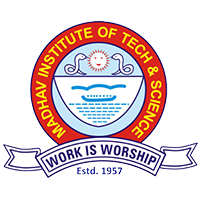| PO |
| PO1 Engineering knowledge: Apply the knowledge of mathematics, science, engineering fundamentals, and an engineering specialization to the solution of complex engineering problems. |
| PO2 Problem analysis: Identity, formulate, review research literature, and analyze complex engineering problems reaching substantiated conclusions using first principles of mathematics, natural sciences, and engineering sciences. |
| PO3 Design/development of solutions: Design solutions for complex engineering problems and design system components or processes that meet the specified needs with appropriate consideration for public health and safety, and the cultural, societal, and environmental considerations. |
| PO4 Conduct investigations of complex problems: Use research-based knowledge and research methods including design of experiments, analysis, and interpretation of data, and synthesis of the information to provide valid conclusions. |
| PO5 Modern tool usage: Create, select, and apply appropriate techniques, resources, and modern engineering and IT tools including prediction and modelling to complex engineering activities with an understanding of the limitations. |
| PO6 The engineer and society: Apply reasoning informed by the contextual knowledge to assess societal, health, safety, legal and cultural issues and the consequent responsibilities relevant to the professional engineering practice. |
| PO7 Environment and sustainability: Understand the impact of professional engineering solutions in societal and environmental contexts, and demonstrate the knowledge of, and need for sustainable development. |
| PO8 Ethics: Apply ethical principles and commit to professional ethics and responsibilities and norms of the engineering practice. |
| PO9 Individual and team work: Function effectively as an individual, and as a member or leader in diverse teams, and in multidisciplinary settings. |
| PO10 Communication: Communicate effectively on complex engineering activities with the engineering community and with society at large, such as being able to comprehend and write effective reports and design documentation, make effective presentations, and give and receive clear instructions. |
| PO11 Project management and finance: Demonstrate knowledge and understanding of the engineering and management principles and apply these to one’s own work, as a member and Leader in a team, to manage projects and in multidisciplinary environments. |
| PO12 Life-long learning: Recognize the need for, and have the preparation and ability to engage in independent and life-long learning in the broadest context of technological change. |
| B.Tech Information Technology (Artificial Intelligence and Robotics) |
| PSO-1 Apply artificial intelligence approaches to design and develop diverse control circuits for robotic solutions |
| PSO-2 Design & implement solutions for robotics applications by applying the concept of data communication, sensors , virtual reality and Internet of Things. |
| B.Tech in Artificial Intelligence & Machine Learning |
| PSO-1 Design, analyze, and implement the solutions of the complex problems using AI & ML techniques such as pattern recognition, clustering and classification. |
| PSO-2 Apply advanced machine learning principles to address practical real-world problems, specializing in natural language processing, computer vision, reinforcement learning, IoT, cloud computing. |
| B.Tech in Artificial Intelligence & Data Science |
| PSO-1 Exhibit comprehensive understanding of human cognition, artificial intelligence, and data science principles to address real-world challenges and successfully confront the evolving demands of society. |
| PSO-2 Apply probability, statistics, and computing concepts to solve complex real-world problems, demonstrating the adeptness to meet the dynamic challenges. |
| Program Educational Objectives |
| AIML |
| 1. Graduates will apply AI and ML methodologies to analyze and interpret large datasets, leading to the development of data-driven innovations in diverse domains. |
| 2. Graduates will design and implement AI systems with a focus on robustness and ethical considerations. They will adeptly handle challenges like bias, ensuring that AI solutions contribute positively to society.. |
| 3. Graduates will exhibit a commitment to continuous learning, leadership, and entrepreneurial thinking, enabling them to excel in dynamic technical & professional environments. |
| AIR |
| 1. Graduates will demonstrate proficiency in designing and developing intelligent robotic systems, integrating cutting-edge techniques in both Artificial Intelligence and Robotics to create innovative solutions. |
| 2. Graduates will adhere to ethical considerations and safety standards in the design, development, and deployment of robotic systems. They will exhibit a keen awareness of the societal impact of AI-driven robotics, focusing on responsible and secure applications. |
| 3. Graduates will cultivate interdisciplinary problem-solving technical skills with diverse perspectives, fostering robust leadership and entrepreneurial insight for impactful contributions, in the fast changing technological scenario. |
| AIDS |
| 1. Graduates will excel in leveraging artificial intelligence and data science techniques to extract valuable insights from complex large datasets. They will apply advanced analytics and machine learning techniques to support data driven decision-making across diverse domains. |
| 2. Graduates will design and implement scalable data solutions, focusing on ethical considerations such as privacy and fairness and ensuring the ethical use of data in the development of AI-driven applications. |
| 3. Graduates will nurture a commitment to lifelong learning with a focus on leadership and entrepreneurship in AI and Data Science. |
माधव प्रौद्योगिकी एवं विज्ञान संस्थान, ग्वालियर (म.प्र.), भारत
Madhav Institute of Technology & Science, Gwalior (M.P.), INDIA
Deemed University
(Declared under Distinct Category by Ministry of Education, Government of India)
NAAC ACCREDITED WITH A++ GRADE

Deemed to be University
(Declared under Distinct Category by Ministry of Education, Government of India)
NAAC ACCREDITED WITH A++ GRADE
Gola Ka Mandir, Gwalior (M.P.) - 474005, INDIA
Ph.: +91-751-2409300, E-mail: vicechancellor@mitsgwalior.in, Website: www.mitsgwalior.in








